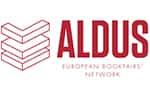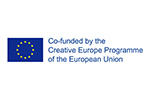EU project: Europe is looking for homogeneous statistics on reading and translation.
All the differences in the mapping by Aldus Up. AIE: "Let's build together a European approach"
Europe is not united yet when it comes to statistics on the book world: from reading habits to translations data, each country performs surveys independently, making it difficult to carry out an overall analysis of trends. This is what emerges from two studies by Aldus Up, the European book fairs network co-founded in the framework of the Creative Europe programme and coordinated by the Italian Publishers Association (AIE), which are published on the network's platform on 16 June during the Bologna Children's Book Fair. "These researches - explains Piero Attanasio, head of international affairs of the Italian Publishers' Association (AIE) and scientific director of Aldus Up - are a first step to define a proposal for a shared methodology for surveys, to help Europe to make a quality leap in statistical analysis in the publishing field: collecting homogeneous data is the prerequisite for any effective action at European level to support reading and translation rights exchange among countries".
The researches have been carried out by AIE (for the study on translations) and by the Norwegian Publishers Association (NPA) with the support of the Foundation Germán Sánchez Ruipérez (for the study on reading), under the coordination and with the contribution of the book studies Johannes Gutenberg department on Book studies, University of Mainz (JGU). The network of the Federation of European Publishers (FEP), provided valuable support to access data sources.
For the researches on reading, 24 surveys were considered from 20 countries: Austria, Belgium, Bulgaria, Czech Republic, Finland, France, Hungary, Italy, Latvia, Lithuania, Poland, Portugal, Romania, Slovenia, Spain, Sweden, the Netherlands and, outside the EU, the UK, Norway and Turkey. The most striking fact is the lack of a common definition of reading: in some countries, only printed books are taken into account, in others also e-books and audio books, in others magazines, Internet sites, and even social networks are included. The age of the participants who took part in the surveys also varies: 9 surveys explored reading habits in the population aged 15+, in two cases in the population aged 16+, in 6 cases among adults only. Five further surveys address different populations, while in two cases reading is measured only among children. Regarding the frequency of surveys, only in 10 countries there are annual or more frequent surveys. There are also differences in the method for data collection – personal interviews, print or online questionnaires or others – and in the use of variables such as the frequency of reading, or number of books read.
With regard to the surveys on translation flows, out of the 23 countries analysed (Austria, Belgium, Czech Republic, Estonia, Finland, France, Germany, Greece, Italy, Latvia, Lithuania, Luxembourg, Netherlands, Norway, Poland, Portugal, Romania, Slovakia, Slovenia, Spain, Sweden, Turkey, United Kingdom), 18 collect data on the number of works translated. Out of these 18, 13 catalogue data on the basis of the language of translation, 4 on the basis of the language and the country of origin and destination, and one exclusively on the basis of the country. Further differences among the surveys concern literary genres and market segments considered.
Only 8 countries conduct surveys on buying and selling rights, a phenomenon that partly overlaps with the number of translations but is fundamental for the interpretation of market trends. 3 of them catalogue data according to country of origin or destination, 3 by the language of translation, 2 according to both variables. The language criteria, however, is not sufficient to detect emerging trends in those regions whose language, such as English, Spanish or French, is spoken in more than one country. On the other side, less spoken languages are often grouped, so data are provided, for example, about the “the Nordic countries”, or “the Slavic languages”, or similar, which do not render the richness and complexity of the European linguistic diversity.
Regarding grants and funding opportunities for translations, Aldus Up provides book professionals with the global directory of translations grants (http://www.aldusnet.eu/translation-grants/(opens in a new window)).
Aldus Up is the European Book Fairs network that aims to innovate and boost book fairs from a European perspective, promoting the exchange of translation rights between countries and the internationalisation of the publishing sector. Co-funded by the European Union's Europe Creative programme, the network, launched in 2016, today involves 20 European fairs and national and international stakeholders in the book sector and research and innovation field. www.aldusnet.eu(opens in a new window)


